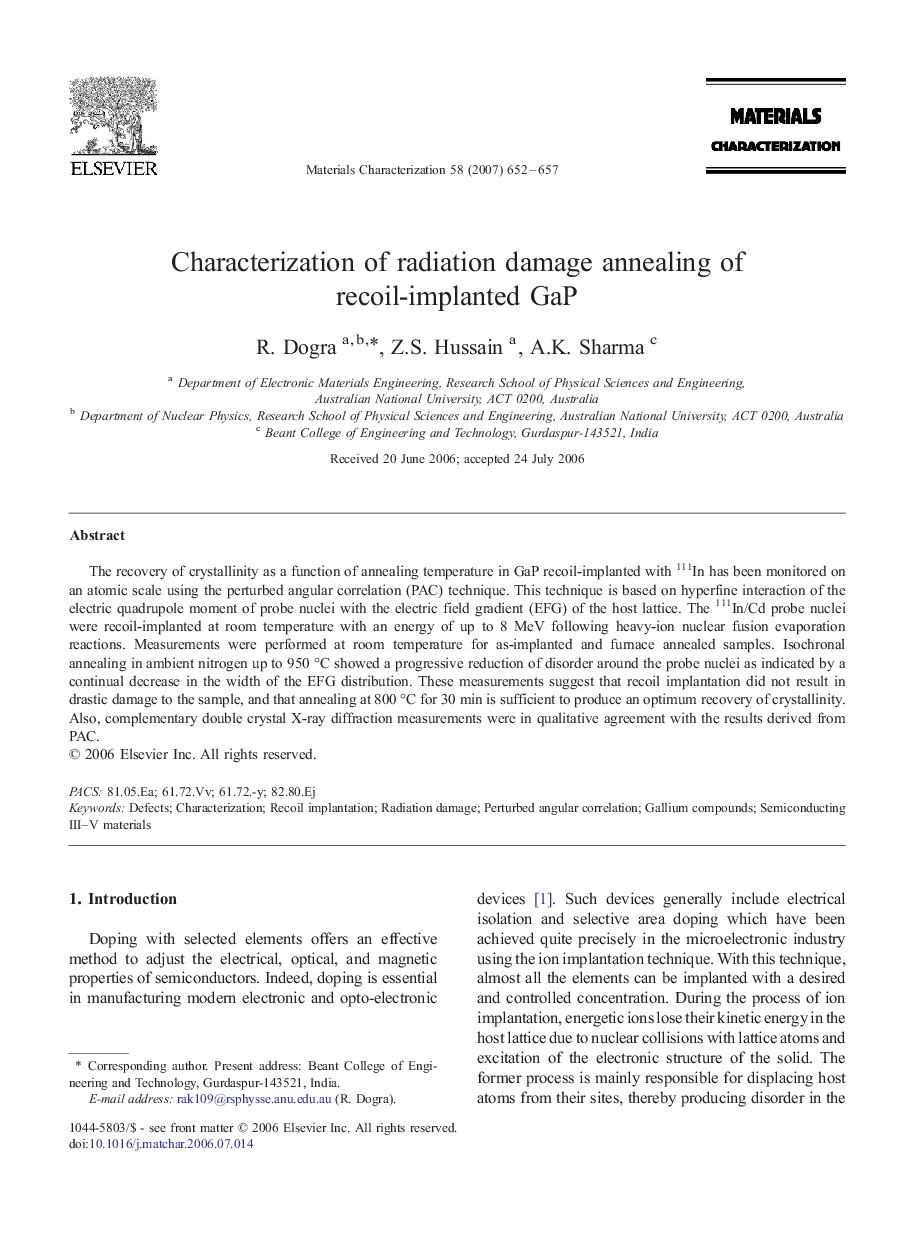| Article ID | Journal | Published Year | Pages | File Type |
|---|---|---|---|---|
| 1572259 | Materials Characterization | 2007 | 6 Pages |
Abstract
The recovery of crystallinity as a function of annealing temperature in GaP recoil-implanted with 111In has been monitored on an atomic scale using the perturbed angular correlation (PAC) technique. This technique is based on hyperfine interaction of the electric quadrupole moment of probe nuclei with the electric field gradient (EFG) of the host lattice. The 111In/Cd probe nuclei were recoil-implanted at room temperature with an energy of up to 8 MeV following heavy-ion nuclear fusion evaporation reactions. Measurements were performed at room temperature for as-implanted and furnace annealed samples. Isochronal annealing in ambient nitrogen up to 950 °C showed a progressive reduction of disorder around the probe nuclei as indicated by a continual decrease in the width of the EFG distribution. These measurements suggest that recoil implantation did not result in drastic damage to the sample, and that annealing at 800 °C for 30 min is sufficient to produce an optimum recovery of crystallinity. Also, complementary double crystal X-ray diffraction measurements were in qualitative agreement with the results derived from PAC.
Keywords
Related Topics
Physical Sciences and Engineering
Materials Science
Materials Science (General)
Authors
R. Dogra, Z.S. Hussain, A.K. Sharma,
